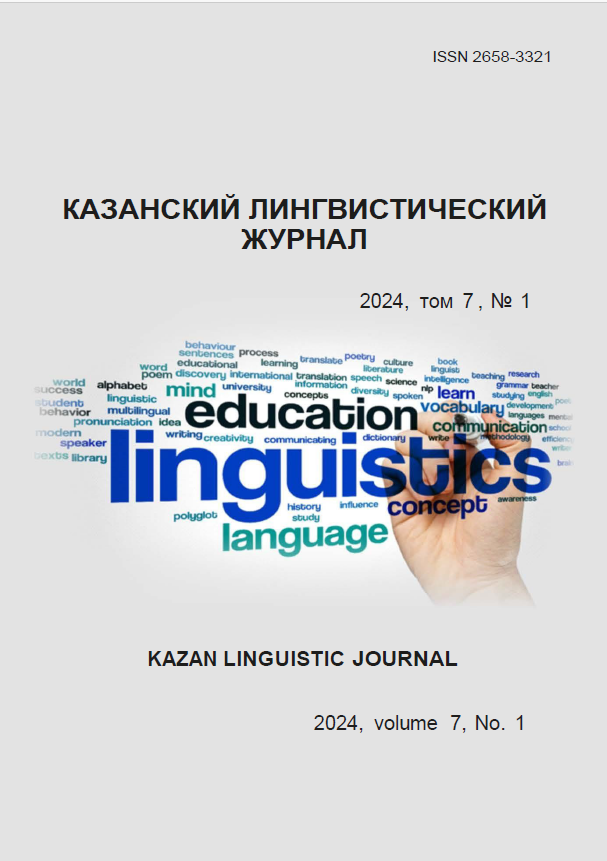Ethnocultural Experience of Representing the Conceptual Meaning of “Small Quantity of Something” at the Phraseological Level in Russian, English and Chinese Languages
https://doi.org/10.26907/2658-3321.2024.7.1.72-84
Keywords:
phraseology, small quantity, conceptual meaning, connotation, stylistic coloring, sphere of functioning, linguocultural studies, national corpora of languagesAbstract
This article deals with the means of manifestation of conceptual quantitative meaning of “small quantity of something” in Russian, English and Chinese languages at the lexico-phraseological level. The expression of this meaning is limited to a rather small group of phrases with diverse symbolism, which is based on etymological images.
While comparing the selected examples with the corresponding phrases from national language corpora and thesauri, we have identified the phraseological units under consideration as grammatically universal. It was found that apart from the general conceptual meaning “small quantity” there are universal connotations for the three languages, such as time, space, preference, (un)certainty, limitation, contrast and quality.
The linguocultural approach is used to study the interchangeability between the phraseological units under consideration in the sphere of their functioning in everyday speech, fiction, social and political essays, etc. It is shown that restrictions on synonymic substitution are related due to the connotative component of meaning and stylistic coloring. Cultural comments to the given examples favor better understanding of the worldview and mentality of the speakers of the three languages.
References
References
Concise Dictionary of Cognitive Terms. Ed. by E.S. Kubryakova. Moscow: Moscow State University Press; 1997. (In Russ.)
Alefirenko N.F., Zolotykh L.G. Phraseological Dictionary: Cultural and Cognitive Space of Russian Idioms. Moscow: Elpis; 2008. (In Russ.)
Fatkullina F.G., Wang Xuejiao. Metaphorical Conceptualization of Phraseological Units about Healthy/Beautiful Women in the Chinese Language and Features of Their Translation into Russian. Kazan Linguistic Journal. 2022; 5(4): 512–522. DOI: 10.26907/2658-3321.2022.5.4.512-522 (In Russ.)
Kornilov O.A. The Pearls of Chinese Idioms. M.: CheRo; 2005. (In Russ.)
Zhang Jingtao. Phraseological Phrases with the Meaning of “Indefinitely Small Quantity” in the Russian Language: the Problem of Lexico-Semantic Combinability. Rational and Emotional in the Russian Language. Proceedings of the International Scientific Conference. Moscow: Moscow State Regional University; 2020. P. 233–236. (In Russ.)
The Russian National Corpus. Available from: https://ruscorpora.ru [accessed: 20.01.2024]. (In Russ.)
Sentence Stack. Available from: https://sentencestack.com [accessed: 11.01.2024]. (In Eng.)
Large English-Russian Phrasebook. Available from: https://large_phrasebook_en_ru.academic.ru [accessed: 15.01.2024]. (In Eng. & Russ.)
The Free Dictionary by Farlex. Idioms and Phrases. Available from: https://idioms.thefreedictionary.com [accessed: 12.01.2024]. (In Eng.)
Center for Chinese Linguistics, Peking University. Available from: http://ccl.pku.edu.cn:8080/ccl_corpus [accessed: 23.01.2024]. (In Chin.)
Beijing Language and Culture University Corpus Center. Available from: http://bcc.blcu.edu.cn [accessed: 27.01.2024]. (In Chin.)
Chinese Text Project. Available from: https://ctext.org [accessed: 22.01.2024]. (In Chin.)






